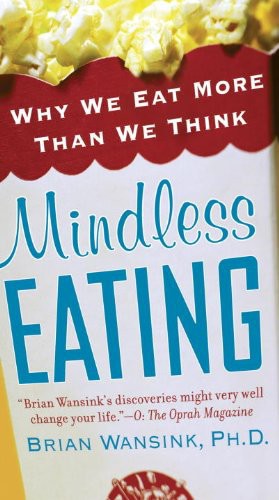
Mindless Eating
Why We Eat More Than We Think
کتاب های مرتبط
- اطلاعات
- نقد و بررسی
- دیدگاه کاربران
نقد و بررسی

September 4, 2006
According to Wansink, director of the Cornell University Food and Brand Lab, the mind makes food-related decisions, more than 200 a day, and many of them without pause for actual thought. This peppy, somewhat pop-psych book argues that we don't have to change what we eat as much as how, and that by making more mindful food-related decisions we can start to eat and live better. The author's approach isn't so much a diet book as a how-to on better facilitating the interaction between the feed-me messages of our stomachs and the controls in our heads. In their particulars, the research summaries are entertaining, like an experiment that measured how people ate when their plates were literally "bottomless," but the cumulative message and even the approach feels familiar and not especially fresh. Wansink examines popular diets like the South Beach and Atkins regimes, and offers a number of his own strategies to help focus on what you eat: at a dinner party, "try to be the last person to start eating." Whether readers take time to weigh their decisions and their fruits and vegetables remains to be seen.

September 15, 2006
Anyone who's tried to follow a strict eating regimen knows how futile it sometimes seems. Nutritional science and marketing professor Wansink explores some of the psychological aspects of overeating to explain why we in fact consume more than we believe we do. He advocates weight-loss diets that cut calories by cutting overall consumption, instead of draconian elimination of intake. Wansink finds the greatest value in retraining one's mind and its perceptions by devices such as making sure one's plate contains at least half vegetables or salad. He suggests that a dieter will automatically eat less in social situations by being the last to start eating and the first to finish. He assesses the dangers of food shopping in bulk-portion stores, where customers are virtually begged to overconsume. Wansink's dual approach emphasizing food knowledge and self-knowledge offers a sensible route to permanent weight loss. A useful appendix arranges different popular diets in tables along with their advantages and disadvantages.(Reprinted with permission of Booklist, copyright 2006, American Library Association.)

























دیدگاه کاربران